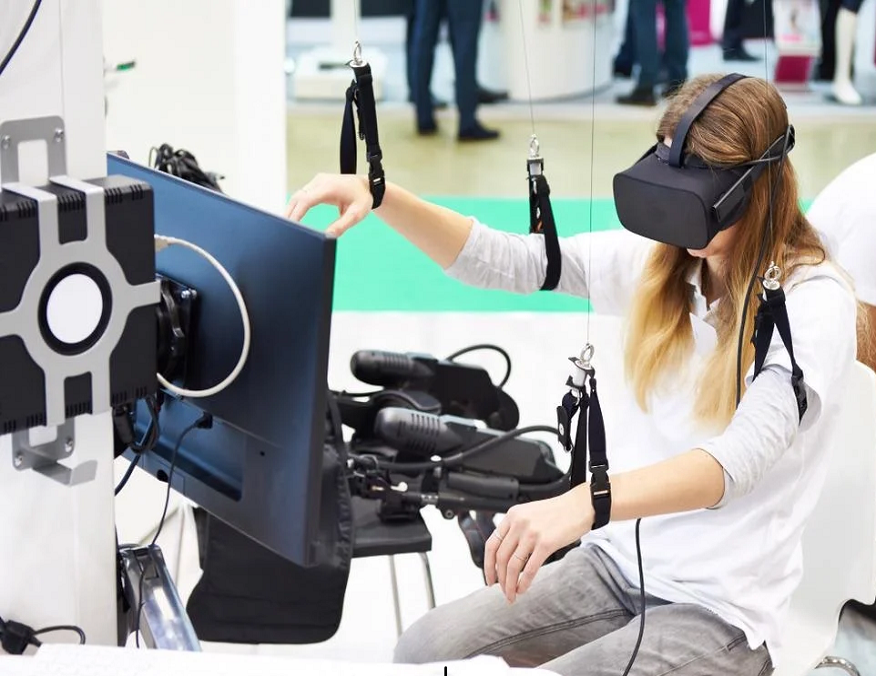Dealing with brain injury treatment and rehabilitation can be challenging, but it is crucial for maximizing recovery and improving quality of life. Neurorehabilitation services refer to a specialized branch of healthcare dedicated to rehabilitating and restoring individuals who have experienced neurological conditions, injuries, or disorders. It focuses on improving and maximizing functional abilities, promoting independence, and enhancing patients’ overall quality of life. A neurorehabilitation service center like Moody Neuro Lubbock has several key responsibilities for providing comprehensive care.
Key Responsibilities of a Neurorehabilitation Service Center
Assessment and Evaluation: A neurorehabilitation center is responsible for conducting thorough assessments and evaluations of patients to determine their specific impairments, functional abilities, and rehabilitation needs. This involves conducting medical evaluations, neurological examinations, functional assessments, and psychological evaluations to comprehensively understand the individual’s condition.
Individualized Treatment Planning: Based on the assessment results, a neurorehabilitation center develops individualized treatment plans for each patient. This involves setting specific goals, selecting appropriate interventions and therapies, and designing a comprehensive rehabilitation program tailored to the individual’s unique needs, abilities, and goals.
Multidisciplinary Team Collaboration: Neurorehabilitation centers typically have a multidisciplinary team of healthcare professionals, including neurologists, physiotherapists, occupational therapists, speech-language pathologists, neuropsychologists, social workers, and rehabilitation nurses. Collaboration among these professionals is crucial to providing comprehensive and coordinated care. For example, Moody Neuro Lubbock is responsible for facilitating effective communication, collaboration, and coordination among team members to ensure patients’ highest quality of care.
Rehabilitation Interventions: Neurorehabilitation centers are responsible for delivering a wide range of evidence-based rehabilitation interventions and therapies. These may include physical therapy, occupational therapy, speech therapy, cognitive rehabilitation, assistive technology, mobility training, balance and coordination exercises, pain management, and psychological support.
Monitoring and Progress Evaluation: A neurorehabilitation center like Moody Neuro Lubbock tracks and monitors the progress of patients throughout their rehabilitation journey. Regular evaluations and assessments are conducted to measure functional improvements, identify areas of ongoing challenges, and make necessary adjustments to the treatment plan. Monitoring patient progress helps evaluate interventions’ effectiveness and make informed decisions about further treatment strategies.
Continuity of Care and Community Integration: A neurorehabilitation center is responsible for ensuring continuity of care beyond the rehabilitation program. This includes facilitating the transition from the center to home or community-based care, providing recommendations for ongoing therapy or follow-up care, coordinating with other healthcare providers, and facilitating community integration programs to help individuals reintegrate into their communities and resume their social roles.
Conclusion
Neurorehabilitation services employ a multidisciplinary approach, involving a team of healthcare professionals with expertise in different areas such as neurology, physiotherapy, occupational therapy, speech-language pathology, neuropsychology, and social work. This team collaborates to develop individualized treatment plans tailored to each patient’s unique needs and goals.
The primary goal of neurorehabilitation services is to promote recovery, restore lost function, and enhance the individual’s ability to participate in daily activities. The specific interventions and therapies employed may vary depending on the nature of the neurological condition and the individual’s specific impairments.




